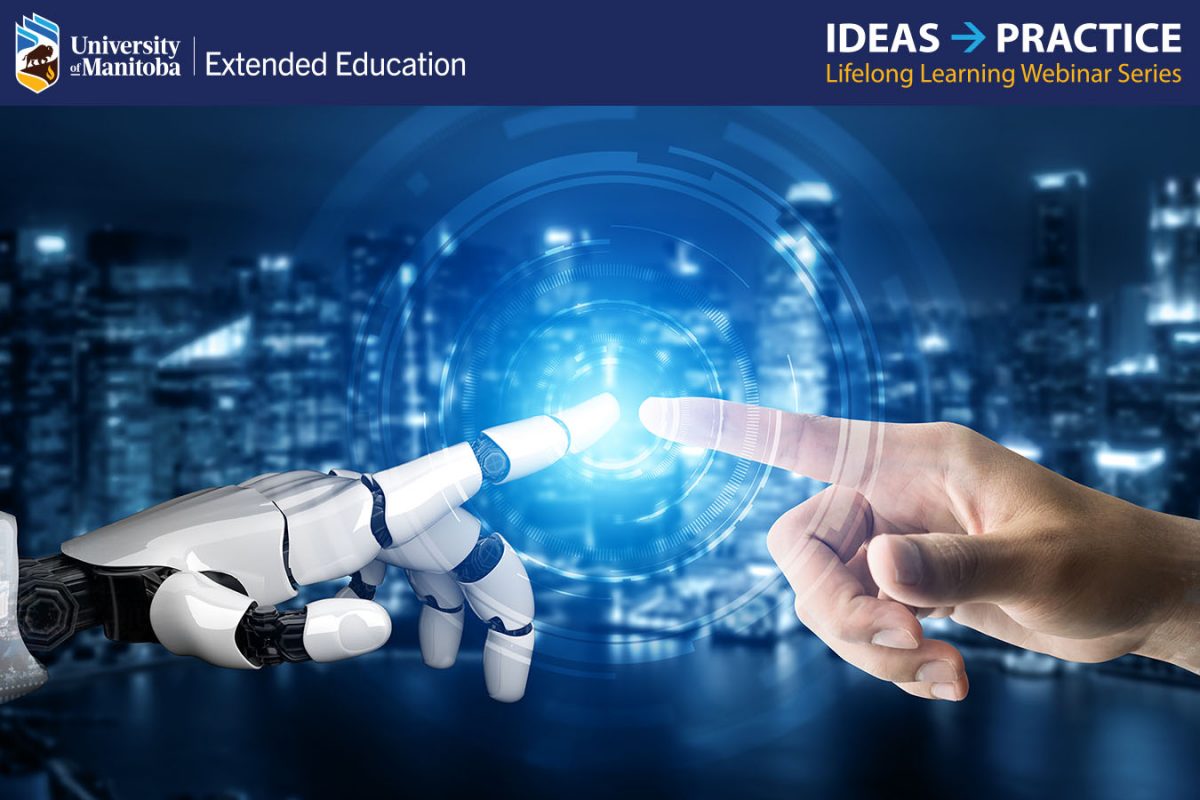
Touching on AI and lifelong learning.
Lifelong Education in the Age of Artificial Intelligence
The first webinar in an Extended Education series
For educators, Artificial Intelligence is often referred to as a potential co-teacher or teaching assistant, but Kelly Shiohira says she resists all personifications of the technology.
“Giving AI agency is quite dangerous,” says the Executive Manager: Research and Data Ecosystems at JET Education Services. “Think about it. If a self-driven car crashes, who is responsible? We bring perspectives AI can’t provide. We need to be careful about maintaining human agency. The person is responsible.”
The literacy specialist currently developing an AI competency framework with UNESCO (the United Nation Educational, Scientific and Cultural Organization) shared her thoughts in conversation with Rod Lastra, Acting Dean, Extended Education during Lifelong Education in the Age of Artificial Intelligence, the first webinar in Extended Education’s Lifelong Learning 2023-2024 Webinar Series exploring the potential and challenges of emerging generative artificial intelligence tools in the realm of lifelong learning.
What AI is
During the webinar, Lastra defined AI as technology that enhances human capacity by simulating cognitive tasks. For example, he says, “In the digital realm, we transitioned from non-AI systems, like statistical software performing direct calculations, to rule-based AI with explicitly coded rules. In Machine Learning AI, systems are trained on large data sets, learning autonomously. Unlike rule-based AI, Machine Learning detects intricate patterns in the data, deducing underlying logic without predefined rules or human intervention.
“Generative AI is trained on vast amounts of public data, processes it, uses it, identifies a pattern, and responds through communication and action.”
Shiohira says she was skeptical of AI but came to it as she set out to research literacy in South Africa. She discovered it is useful for basics but not a solution. “For Math, it is a no-brainer. It is straightforward. There are no complexities to consider like second languages, no need to credit people for new ideas. Where learner outcomes are so poor there is a place for technology to supplement learning support. In more advanced educations systems, it can help students to focus on extracurricular work with math and reading programs.”
There are ethical considerations. For example, AI face recognition software can help teachers to monitor which students are engaging in the classroom. “In a small class, a teacher knows. In a large class, they won’t have time to monitor a dashboard as they teach,” she says. Further, it also raises questions of consent for using AI algorithms that can assess engagement.
Issues
Ownership concerns emerge when Generative AI produces creative and academic content. Key issues include determining the appropriate citation methods and identifying the rightful owner. Additionally, while AI excels at refining writing, it may inadvertently enhance and propagate misconceptions or flawed notions, says Lastra.
AI can hallucinate or make mistakes and incorrect information can propagate with models degenerating over time.
Shiohira encouraged everyone to talk about AI literacy. “You need to know what it is, where in your life you encounter it, about data collection, your permissions, and how to challenge one of its decisions like unjustly refusing you a mortgage.”
Our data is being extracted, made into products, and sold back to us, she says. We have been dealing with the transformation of Generative AI since the early 2000s. Ethical data principles are essential. “Who is the owner of data? If you generate it, it should belong to you.”
Concerns about cheating and fraud have been around for years, she says noting at one time, teachers did not want students to use spellcheckers but they need to learn how to integrate them like they did with calculators.
“The process still has value. We won’t give up teaching how to write essays and develop your voice. We need parameters.”
Watch the video and get recommended readings, then join Extended Education on Nov. 17 for the second webinar in the series, Tools of Tomorrow: Harnessing AI in Continuing Education.
This winter, Extended Education once again offers a Micro-Certificate in Artificial Intelligence: Machine Learning Solutions.






